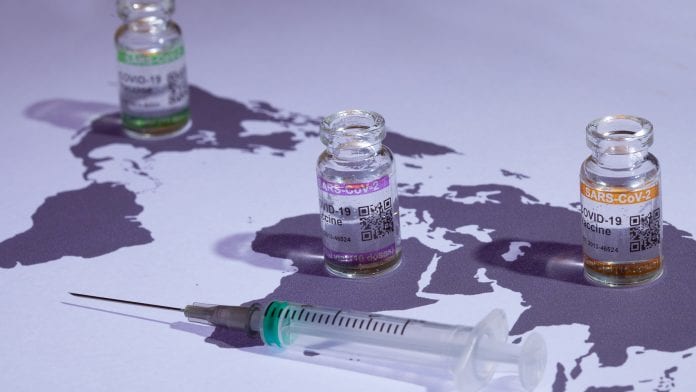
Pfizer’s Dervila Keane details the process of storing, shipping, and distributing COVID-19 vaccines.
Pfizer is a proven, reliable multinational vaccine producer, supplying vaccines to over 165 countries. Before the Pfizer-BioNTech COVID-19 vaccine was developed, Pfizer manufactured more than 200 million doses of other vaccines annually. Additionally, Pfizer is one of the largest sterile injectables suppliers in the world, producing more than one billion sterile units per year.
Our track record gave us the ability to quickly scale, manufacture and distribute large quantities of a high-quality COVID-19 vaccine, leveraging multiple sites in the US and Europe. We are leveraging our experience working with differing customers with different infrastructures in all markets to ensure success.
During the initial pandemic stage, our contracts are with the governments, and we are providing doses according to their preferred channel and designated vaccination locations. We are working with governments to support distribution to their defined priority groups. Points of vaccination vary, but may include hospitals; outpatient clinics; community vaccination locations and pharmacies. We developed detailed logistical plans and tools to support effective vaccine transport, storage and continuous temperature monitoring. Our distribution is built on a flexible just-in-time system which will ship the frozen vials to the designated location or the point of vaccination.
Shipping and packaging
We are utilising road and air modes of transportation via our main carrier partners. Through this approach, we are able to deliver from our Pfizer sites directly to points of use (POU) within a day or two in the US and within three days globally. We have also developed packaging and storage innovations to be fit for purpose to meet the needs of our global network: we have specially designed, temperature-controlled thermal shippers utilising dry ice to maintain recommended temperature conditions for up to 10 days unopened. We are utilising Pfizer’s strategic transportation partners to ship by air to major hubs within a country or region and by ground transport to dosing locations.
We are utilising GPS-enabled thermal sensors in every thermal shipper with a control tower that tracks the location and temperature of each vaccine shipment across their preset routes, 24 hours a day, seven days a week. These GPS-enabled devices allow Pfizer to proactively prevent unwanted deviations and act before they happen.
Vaccine storage
Once a POU receives a thermal shipper with our vaccine, they have three options for storage:
- Ultra-low-temperature freezers, which are commercially available and can extend shelf life for up to six months;
- The Pfizer thermal shippers, in which doses arrive, that can be used as temporary storage units by refilling with dry ice every five days for up to 30 days of storage; or
- Refrigeration units that are commonly available in hospitals. The vaccine can be stored for five days at refrigerated (2°C to 8°C) conditions.
The shipper can maintain temperature for 10 days unopened which allows for transportation to markets globally to ensure all patients have access. Once opened, and if being used as temporary storage by a vaccination centre, then it can be used for a total of up to 30 days with re-icing every five days.
After storage for up to 30 days in the Pfizer thermal shipper, vaccination centres can transfer the vials to 2-8°C storage conditions for an additional five days, for a total of up to 35 days. Once thawed and stored under 2-8°C conditions, the vials cannot be re-frozen or stored under frozen conditions. The various storage options at the POU allow for equitable access to the Pfizer vaccine to areas with differing infrastructure.
Extensive testing is completed on the shippers, including worst-case thermal and mechanical testing, which in combination provide data on temperature and structural integrity of the thermal shippers during distribution.
Equitable access
Pfizer is firmly committed to work towards equitable and affordable access for COVID-19 vaccines for people around the world. We believe that this is a collective responsibility that calls for highly coordinated and collaborative action by public and private stakeholders alike to end the COVID-19 pandemic.
We are actively working with governments all around the world, as well as global health partners, to work towards fair and equitable access to COVID-19 vaccines; as well as providing our expertise and resources for novel approaches that can help to strengthen healthcare systems where greater support may be needed. Currently, we are in talks with more than 100 countries and supranational organisations on the supply of our COVID-19 vaccine. We have allocated doses for supply to low- and lower-middle-income countries at a not-for-profit price.
On 31 December 2020, the Pfizer-BioNTech vaccine was granted the first World Health Organization (WHO) Emergency Use Listing of a COVID-19 vaccine. This is an important step for enabling vaccine access for low and lower-middle income countries and very encouraging progress for Pfizer and our global health partners as we work towards fair and equitable access to vaccines in the face of this public health crisis.
Dervila Keane
Global Media Relations, Europe AfME
Pfizer
www.pfizer.com
This article is from issue 17 of Health Europa. Click here to get your free subscription today.










